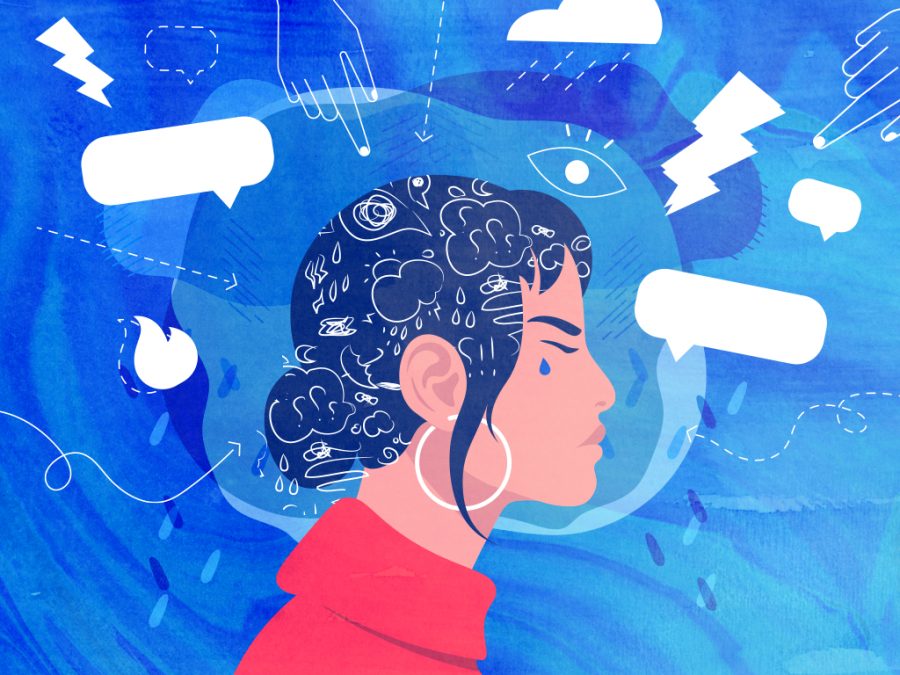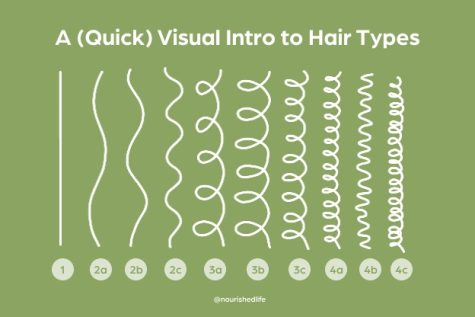Moving away from the South Asian mental health stigma
One out of every five South Asians in the United States have reported some type of mood disorder in their lifetime, and most often those reported are South Asian women.
According to the South Asian Public Health Association, American South Asian youth are at the highest risk for suicidal thoughts or behavior than any other minority group. One out of every five South Asians in the United States have reported some type of mood disorder in their lifetime, and most often those reported are South Asian women. The ratio of prevalence for anxiety in South Asian Americans is 5.8% compared to 9.8% for all Asian Americans. Growing up as a South Asian American woman, viewing these statistics isn’t as shocking as it might seem to others. The common South Asian stigma towards mental health follows us around everywhere, whether it’s judgment from our community, family or just from ourselves.
Even as a young kid, my first instinct when I ran into minor conflicts was to handle it on my own. The whole idea had been just hiding it from my parents. Even seen by psychologists in their practices, mental illness has been viewed as a taboo for generations in many South Asian families. First generation South Asian Americans have recognized first-hand how the stigma consumes mental illness and even the consideration of reaching out for one’s personal needs. In fact, according to the Substance Abuse and Mental Health Services Administration, Asian Americans are the least likely to utilize the mental health services available.
Not too long ago, I believed that I would never feel anything remotely close to a mental illness. I thought any hints of stress I had felt would only be seen as “weak” to my distant and close family members. After all, both my parents immigrated across the globe, learned a new language and assimilated into an entirely different culture… What difficulties could I face harder than those my parents have? There is still much discomfort and fear I with coming forward with my mental health, alongside admitting to what I feel and cannot always control.
Another issue correlated with the stigma has to do with the pressure of success and having no struggles or so-called failures on that rocky path. The validation we receive from our parents at times can seem like a better alternative than getting the help we could possibly need. So then this disillusioned pressure of not being good enough to measure up to our family’s standards comes into mind. Until my mother recently opened up about her journey and mental health along the way of immigrating and assimilating to the US, I was unaware of how embedded this stigma was for South Asians.
My mother had immigrated to the United States with my father after their marriage, and she was slowly easing herself into this new life all laid out for her. Coming to America meant my mother had to speak a new language, work at an entirely different job and find her new place in another continent. This didn’t come easily with a snap of a finger; she also had her share of struggles throughout this process. Asking for help during her transition to a different continent wasn’t easy either; although her family was miles away from her now, the stigma surrounding mental health followed across oceans.
Knowing this, I recognized that the fault of avoiding mental illness does not lay at just the hands of our parents, but generations of this same teaching. It took so long for my mother to discuss this so-called sour subject took her because just as my parents share the fear of their child, me, coming forward with a mental health issue, both of their parents had this fear for her. It was taught for generations, and it’s continued into my generation.
Now, with the availability of therapeutic resources and mental health counseling, it is vital that we break this stigma in order to improve the way South Asian American children and teenagers can ask for help. My mother’s story liberated me from concealing my feelings from everyone and not forcing the pressure to go on a straight road to success. I always viewed my mother as someone I looked up to, but now I view her as a strong person and my closest friend.
The advocation for mental health in the South Asian American community must be normalized for us to move forward. Having a safe place to open up with feelings, and not fear the shame that could along with it, comes from accepting mental illnesses as a factor to our health. Our cultural heritage or background should not be used as an excuse to avoid mental illness, but rather it should serve as an inspiration to see how far the ones before us have come.
Your donation will support the student journalists of Neuqua Valley High School. Your contribution will allow us to print our next newspaper edition as well as help us purchase equipment and cover our annual website hosting costs.






